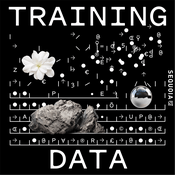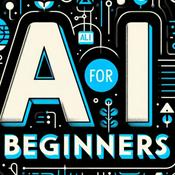524 episodes
- Stephen Wolfram answers questions from his viewers about the future of science and technology as part of an unscripted livestream series, also available on YouTube here: https://wolfr.am/youtube-sw-qa
Topics discussed: Engineering the human body - Life beyond biological definitions - Biology as a computational science - The future of psychology as a science - Stephen Wolfram answers general questions from his viewers about science and technology as part of an unscripted livestream series, also available on YouTube here: https://wolfr.am/youtube-sw-qa
Topics: Three-body problem and computational irreducibility - Climate and radiation on planets with multiple suns - Cherenkov radiation and why it doesn't break relativity Proton decay, particle physics and "how bad would it be?" - Stephen Wolfram answers questions from his viewers about business, innovation, and managing life as part of an unscripted livestream series, also available on YouTube here: https://wolfr.am/youtube-sw-business-qa
Topics discussed: Managing work, focus and personal limits - For-profit vs. nonprofit decisions - Ultimate end goals in life and career - Public involvement in science - Productivity systems and practical tools - Stephen Wolfram answers questions from his viewers about the future of science and technology as part of an unscripted livestream series, also available on YouTube here: https://wolfr.am/youtube-sw-qa
Topics discussed: The future of doing science - Learning with LLMs - Long-term futures of intelligence and technology - Stephen Wolfram answers questions from his viewers about the history of science and technology as part of an unscripted livestream series, also available on YouTube here: https://wolfr.am/youtube-sw-qa
Topics: How 2025 fits into the history of science and technology - Theory vs. experiment in science and education - Panics in the history of technology
More Technology podcasts
Trending Technology podcasts
About The Stephen Wolfram Podcast
Stephen Wolfram is the creator of Mathematica, Wolfram|Alpha and Wolfram Language; the author of A New Kind of Science; and the founder and CEO of Wolfram Research. Over the course of nearly four decades, he has been a pioneer in the development and application of computational thinking—and has been responsible for many discoveries, inventions and innovations in science, technology and business.
On his podcast, Stephen discusses topics ranging from the history of science to the future of civilization and ethics of AI.
Podcast websiteListen to The Stephen Wolfram Podcast, The AI Daily Brief: Artificial Intelligence News and Analysis and many other podcasts from around the world with the radio.net app

Get the free radio.net app
- Stations and podcasts to bookmark
- Stream via Wi-Fi or Bluetooth
- Supports Carplay & Android Auto
- Many other app features
Get the free radio.net app
- Stations and podcasts to bookmark
- Stream via Wi-Fi or Bluetooth
- Supports Carplay & Android Auto
- Many other app features


The Stephen Wolfram Podcast
Scan code,
download the app,
start listening.
download the app,
start listening.






































